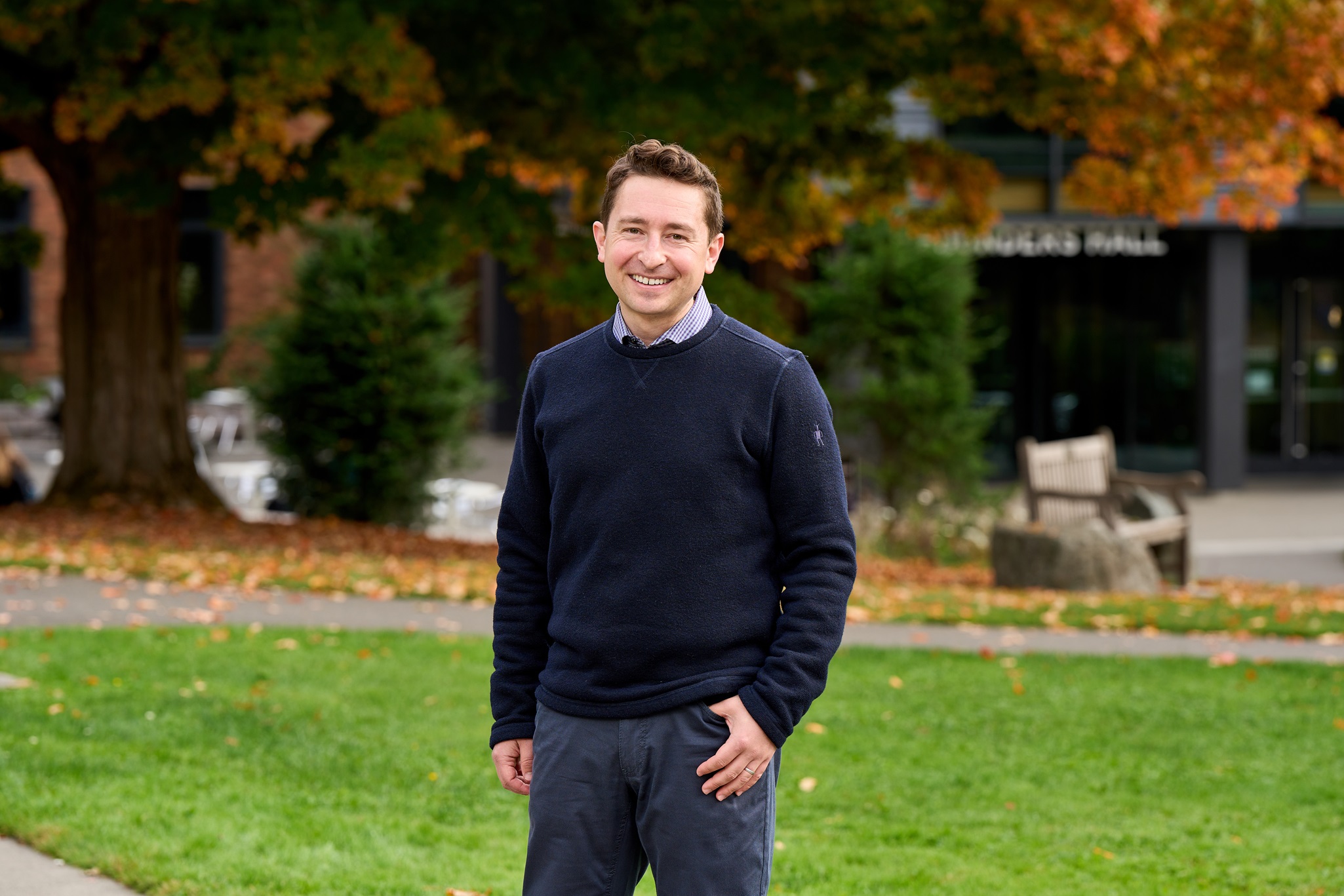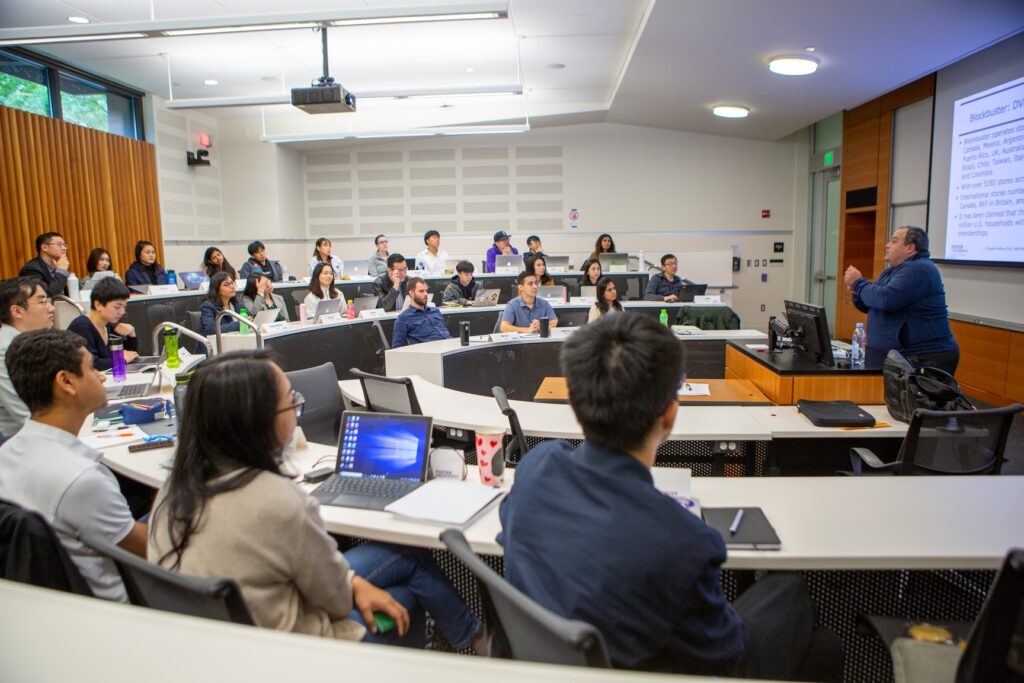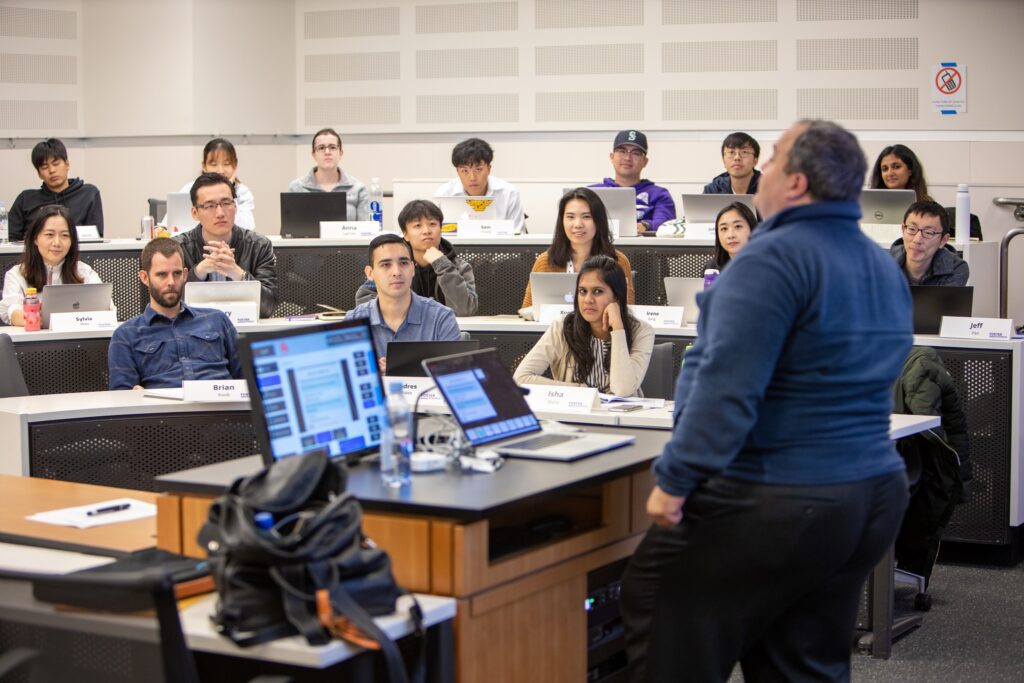
MSBA Alum Leverages Foster Program for Career Success
Zach Charat shares how the Foster MSBA helped him transition from the global health sector to a thriving role at Salesforce
“The ability to learn from a top-tier analytics program after work hours put the University of Washington Master of Science in Business Analytics program at the top of my list,” said Zach Charat (MSBA 2021).
Zach, who earned his undergraduate degree from the University of Washington, returned to the Foster School of Business after a decade of work experience in the global health sector. As a full-time working professional, Zach was looking for a program that had a strong reputation, would fit into his busy schedule, and could provide him with the analytics and programming skills to propel his career forward.
Within months of graduating from the Master of Science in Business Analytics (MSBA) program, Zach landed a full-time role at Salesforce. Now a Decision Scientist, he is sharing how he made the most of his time in the program and how he’s put his newfound knowledge to good use.

What did you learn in the MSBA?
When Zach joined the MSBA program, he wanted to expand his scope beyond public health and develop a more broadly applicable skill set.
The MSBA starts with a curriculum that combines data analytics and programming, taught by experts in their respective fields. Zach even refers to specific analytics courses as a turning point, where he went from “scrappy amateur” to “professional analyst.”
“Most technical content is available on the internet somewhere,” said Zach. “But to hear how experts in the field think through problems and select the right tool for the job, that sets good data habits and instincts in place.”

Here are some learning outcomes that stood out to him:
- Programming Skills: Zach’s understanding of programming began to click while taking the range of analytics courses that are part of the MSBA curriculum. These courses aren’t just about learning how to program; they teach students how programming can be utilized in a business context.
- Real-World Experience: During the MSBA Practicum class, Zach worked with a local company on a real-world business problem using real-world data. (Hint: it’s a company he currently works at).
- Soft Skills: Zach happily reports that he’s applied the negotiation skills he’s gained from his classes to coordinate resources for project planning and data sharing agreements in his current job.

How are you using the MSBA?
A few years removed from his time in the program, Zach reflects on the depth of his experience at UW Foster School of Business. He boasts about the Foster Career Services team and the number of mock interviews they hosted during his program. “It’s not just ‘networking for networking’s sake.’ These events allowed students to practice their personal stories while gaining exposure to the analytics community.”
Asked how the MSBA program still impacts him to this day, Zach quickly mentioned that he regularly goes back to the folder of reusable data he accumulated as a graduate student. He proudly shares that it’s a huge resource for helping him set up problems at work.

How did the MSBA help?
Zach continues to stay actively involved in the program, returning as a guest speaker and serving as a project sponsor for the capstone project. His involvement provides current students with valuable insights from a program alum, allowing them to explore potential career paths and learn from the real-world experiences of someone who successfully transitioned careers.
The Master of Science in Business Analytics degree was pivotal in Zach’s career transition from global health to analytics. Through the program, he gained the essential skills that helped him secure a role at Salesforce, marking a significant step in his career journey. “The program will demystify most of the data science methods used in the business analytics field. By the end of this program, you’ll be able to read and write code that uses data to answer business questions.”
The most challenging (but most rewarding) part of the MSBA program is that you learn all of this in such a short amount of time. “The program is intense, but it’s done in one year – and you don’t have to quit your day job to level up!” Zach said. It’s tough, especially if you’re a working professional, but the result is a deep insight into data storytelling that can boost your career.
Click HERE to learn more about the Master of Science in Business Analytics program.
